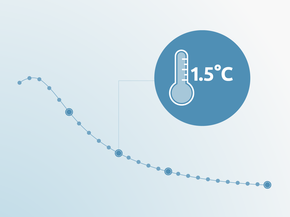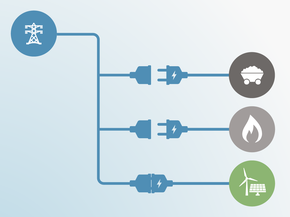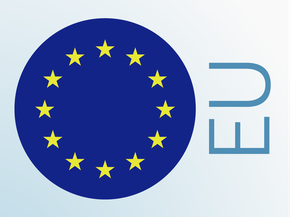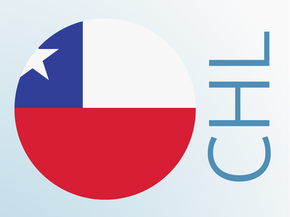Country summary
Overview
Brazil has updated its NDC target twice since Paris. Its most recent (March 2022) update is stronger than its 2020 update (so the CAT‘s overall rating has improved slightly to “Insufficient” rather than “ Highly Insufficient”), but remains weaker than its original NDC submitted in 2016. This updated NDC still allows higher emissions than Brazil’s first submission, in contrast to the Paris Agreement’s principles of progression and no back-sliding.
Brazil is laser-focused on boosting the use of fossil gas in the power supply to combat hydropower shortages caused by droughts in 2021, despite the far more promising performance of other renewable energy technologies in the country, such as wind and solar.
Brazil’s long-term energy plans see an expanded role for fossil gas and oil, with the production of both types of fossil fuel set to increase in the coming decade. Investment in the exploration and production of fossil fuels could reach over USD 500bn over the same period. Unless additional policies are put in place, emissions in the energy sector will resume a rising trend as Brazil’s economy recovers from the impacts of COVID-19, locking Brazil into a more carbon intensive energy system and leaving much of its considerable potential for renewable power generation untapped.
Deforestation in Brazil has increased and is expected to continue to rise in the coming years. Deforestation in Brazil increased in 2020 and 2021, largely due to illegal mining activity and cattle ranching. In addition, weak law enforcement and illegal activities facilitated access to protected lands. Without any change to current policies, emissions are expected to continue increasing, again leaving Brazil far from achieving its climate targets. Preliminary reports indicate that by mid-2022 deforestation has hit records in the Amazon area.
There was a significant step forward in July 2022 when the Supreme Court declared the climate fund must be reactivated, and recognised the Paris Agreement as a human rights treaty - making Brazil the first country to do so.
Brazil’s presidential election will take place in October 2022, and among the candidates there is a different degree of commitment in terms of climate mitigation action. There is strong support among most candidates and voters to reduce deforestation - in contrast to President Jair Bolsonaro's current policies. In debates, climate change has not yet been discussed in much detail. No candidate has presented a concrete proposal to substantially change current efforts to reduce emissions in Brazil’s energy and industry sectors. As a first step, the president-elect should review the commitments made in Brazil’s latest NDC, and increase climate ambition and action to align with 1.5˚C compatible pathways, and ensure a governance structure with the necessary resources to implement the required policies and actions in all sectors.
Overall, the CAT rates Brazil’s ambition on climate change policy as "Insufficient". This rating is an improvement from our previous “Highly insufficient” rating, driven by the 2022 NDC submission, which includes an improved percentage reduction target that requires Brazil to implement additional actions to reach it. However, the improved rating is not the result of any new policies and actions, of which we have seen very little, if any, that would be of benefit to the climate.
The CAT rates Brazil’s climate targets and policies as “Insufficient", indicating that Brazil’s climate policies and commitments need substantial improvements to be consistent with limiting warming to 1.5°C.
Under Brazil’s current policies, emissions will continue to rise and the country will not meet its 2030 NDC target. Brazil is also not meeting its fair share contribution and needs to set a more ambitious target for emission reductions and implement more stringent policies.
There are significant gaps in Brazilian policies for halting emissions growth, and its deforestation remains a serious cause for concern. The CAT rates Brazil’s policies and action as “Insufficient”.
The continued roll-back of forest protection policies is enabling ever higher deforestation rates, pushing emissions from Brazil’s largest emissions source upwards after more than a decade of decline.
Agriculture remains the second largest contributor to Brazil’s greenhouse gas (GHG) emissions after deforestation, and itself is a key driver of deforestation. In the energy sector, a clear cause for concern is Brazil’s energy infrastructure planning, which unnecessarily continues to incorporate fossil fuels, including coal and gas.
On a more positive note, market trends for renewable power generation are heading in the right direction, with a steady increase in wind and solar capacity.
In 2021, Brazil’s GDP grew by 4.6%, but major challenges remain. On the one hand, rising prices of oil have been pushing inflation upwards, and on the other, climate impacts have been compromising hydropower generation. The government has been officially calling for households to save energy, issuing a “red tariff” on consumption, effectively increasing the price in an attempt to reduce demand. In 2022, inflation hit its highest level in 15 years, mostly due to the remaining pandemic impacts and the global energy crisis effect on commodity prices.
The Bolsonaro administration has systematically undermined environmental regulation. As the media and public attention were focused on COVID-19, the government used the pandemic to push forward policy mechanisms (e.g. projects of law; presidential decrees; hindering data transparency) aimed at rolling back environmental regulation.
Presidential elections are in October 2022, bringing the possibility of a change in government. Such a change could have a positive impact on climate policy if candidates with strong and ambitious proposals are elected. However, given Bolsonaro is running for a second term, there is a risk of continuing with the same line of the current government that has demonstrated its lack action in climate change policies.
A group of more than 60 non-state key actors from Brazil NGOs, society groups, and research institutions has prepared a report with a roadmap called Brazil 2045 for the first 100 days of a new government. The proposal includes urgent actions and changes in policy to support Brazil in achieving its net zero ambition.This report shows that there is a strong agreement that Brazil needs and can become more climate ambition while developing.
The full policies and action analysis can be found here.
In 2022, Brazil submitted a second NDC update, which improves emissions targets compared to the 2020 submission. However, due to changes in reference emissions used to calculate the targets, the latest submission remains weaker compared to Brazil’s original NDC, submitted in 2016. We rate the 2030 NDC target as “Almost sufficient” when compared to modelled domestic emissions pathways. The “Almost sufficient” rating indicates that Brazil’s NDC target in 2030 is not yet consistent with limiting warming to 1.5°C but could be, with moderate improvements. If all countries were to follow Brazil’s approach, warming could be held below—but not well below—2°C.
This rating takes into account the fact that Brazil would need international support for a portion of the actions required to limit warming to 1.5 °C. As Brazil has not submitted a conditional target, we rate the unconditional target here.
We rate Brazil’s 2030 NDC target as “Insufficient” when compared with its fair share contribution to climate action.
The “Insufficient” rating indicates that Brazil’s NDC target in 2030 needs substantial improvements to be consistent with limiting warming to 1.5°C. Brazil’s target is at the least stringent end of what would be a fair share of global effort, and is not consistent with the 1.5°C limit, unless other countries make much deeper reductions and comparably greater effort. If all countries were to follow Brazil’s approach, warming would reach over 2°C and up to 3°C
Deforestation rates have increased rapidly in Brazil in recent years. The rise in illegal deforestation is linked with a systematic dismantling of Brazil’s institutional and legal frameworks for forest protection and takes Brazil in the opposite direction of its deforestation commitments.
Given the key role of the Land Use and Forestry sector in Brazil’s NDC and the huge global importance of its forests for environmental services, biodiversity, and carbon sequestration, the Brazilian government urgently needs to strengthen mitigation action in this sector, instead of weakening it.
As part of its updated NDC, Brazil has set an indicative goal of reaching net-zero by 2050, conditional on the receipt of financial support. An assessment of the net zero target is not possible given that no details are presented in the NDC. The information is not clear if all the target includes all GHGs , or only CO2, nor how it intends to use carbon offsets and carbon dioxide removal. The CAT evaluates Brazil’s net zero target as “Target information incomplete”.
The full net zero target analysis can be found here.
Further analysis
Latest publications
Stay informed
Subscribe to our newsletter






